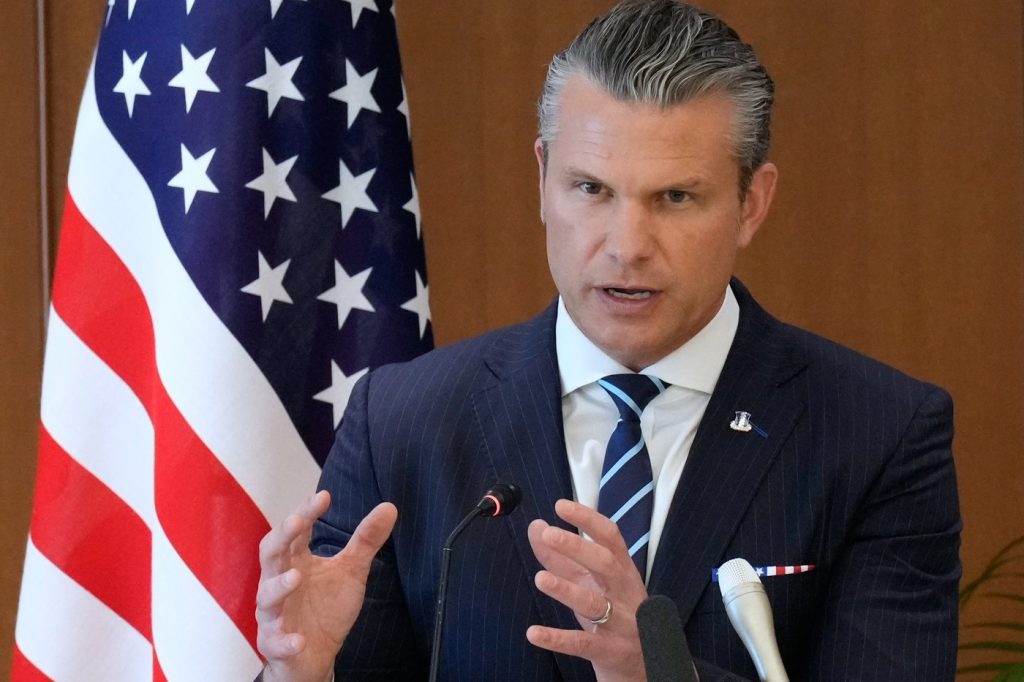On Wednesday, U.S. Defense Secretary Pete Hegseth expressed support for Japan's renewed commitment to accelerate its military buildup and increase defense spending. During his visit to Tokyo, Hegseth emphasized the urgency of this initiative in light of China's growing military activities in the region.
Hegseth remarked, "The threats we face are real, and they are urgent. China’s unprecedented military buildup and its aggressive military actions speak for themselves." He underscored the importance of the U.S.-Japan alliance in deterring potential Chinese military aggression and responding to regional threats effectively, ensuring the safety of both nations.
Expressing gratitude, Hegseth noted his approval of Japanese Prime Minister Sanae Takaichi’s recent commitment to increase Japan's defense spending. He described this move as “wonderful,” adding that the U.S. had not pressured Japan regarding its spending increase. Takaichi, who took office just a week prior, informed President Donald Trump during their first summit that Japan intends to raise defense spending to 2% of its gross national product by March, which is two years ahead of the original timeline.
Following discussions with Japanese Defense Minister Shinjiro Koizumi, Hegseth highlighted the significance of accelerating these defense commitments. “It’s an important step forward, and one that we hope would be implemented and believe will be as soon as possible,” he stated during a joint news conference. Hegseth emphasized the necessity of quick investments in defense capabilities to deter threats effectively.
Koizumi welcomed the agreement between the two nations to expedite the delivery of U.S.-manufactured Advanced Medium Range Air-to-Air Missiles (AMRAAM), although he did not provide additional specifics regarding the arrangement. Japan is focused on establishing a self-sufficient military infrastructure as a countermeasure to China's assertive military posture in the region and is particularly concentrating on enhancing defense on its southwestern islands.
The concerns do not stop at China; Japan is also wary of escalating tensions stemming from North Korea and Russia. In response, Japan has accelerated plans for the deployment of medium and long-range missiles, including Tomahawk cruise missiles and domestically produced Tupe-12 anti-ship missiles.
This shift in defense strategy signals a significant departure from Japan's long-standing policy of maintaining a military limited to self-defense, as stipulated by its pacifist Constitution established post-World War II. The country has already broken with previous norms through a 2022 security strategy, which advocates for a more proactive role for Japan's Self-Defense Forces and includes easing restrictions on arms exports. Takaichi's administration aims to further liberalize weapons transfers, reflecting a broader strategic realignment in response to regional threats.










